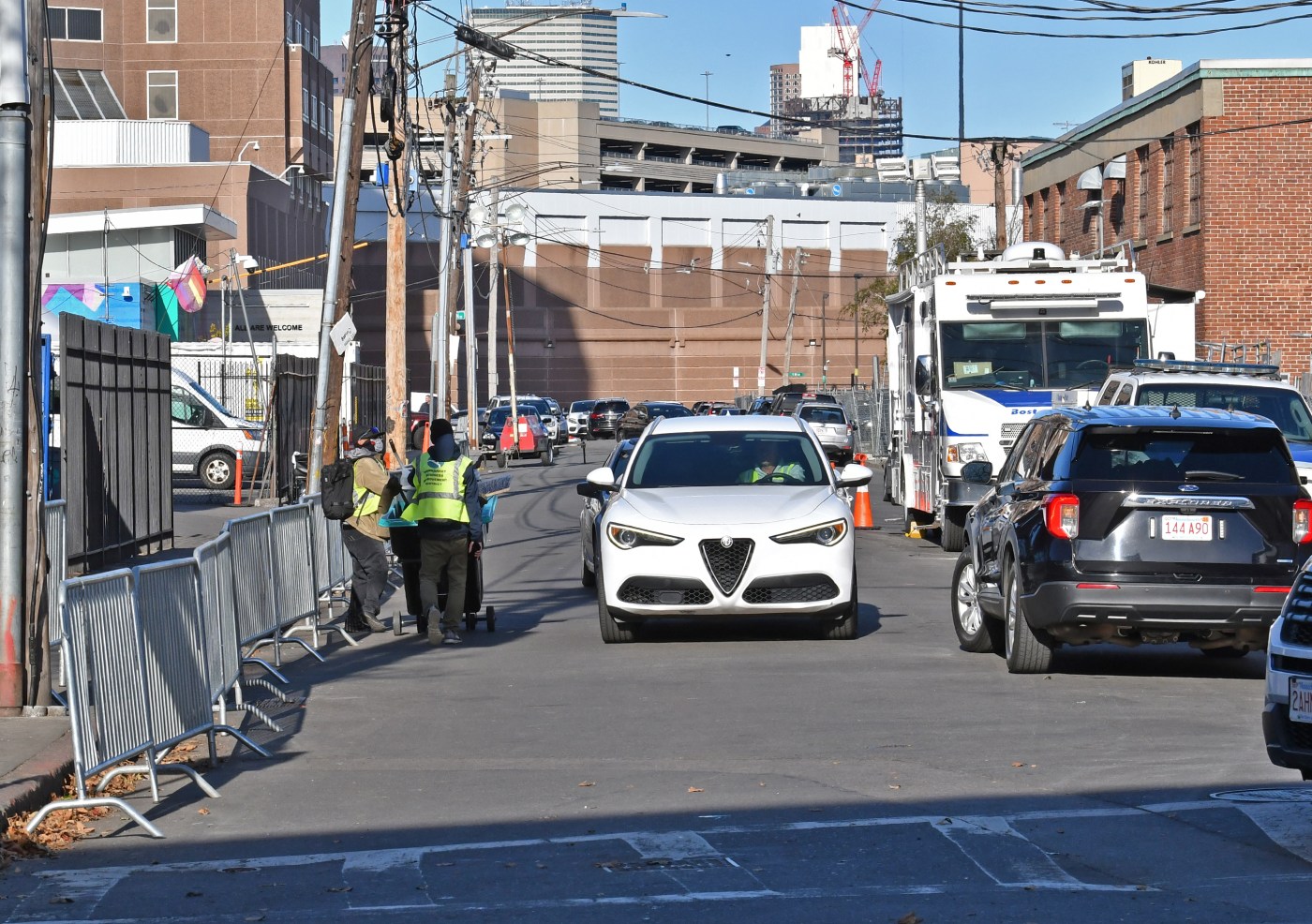
Boston Medical Center ups security after spike in Mass and Cass dwellers sheltering there
Boston Medical Center’s top executive said the number of people loitering on the campus and using its emergency department for shelter has spiked since the city began clearing out homeless encampments in the Mass and Cass zone.
The hospital has increased security patrols and is working with the Boston Police Department to cope with the rising number of squatters on its Massachusetts Avenue campus, which is located near the former encampment activity, Dr. Alastair Bell, president and CEO of the BMC Health System, said on Wednesday.
Related Articles
Mass and Cass tents come down in Boston [+gallery]
St. Anthony Shrine jumps in to Mass and Cass mess
Boston Police to begin enforcing Mass and Cass tent ban on Wednesday
Battenfeld: Maura Healey and Michelle Wu face twin tests this week on migrants and homeless
No new tents, Wu says ahead of Mass and Cass enforcement push
“On our campus, we’ve seen a marked increase in loitering and homeless people sleeping at various points — parking garages, the salt shed at the back of one of the parking garages, sidewalks, outside the emergency department,” Bell, a member of the city’s Board of Health, said at an evening meeting.
At about 6 a.m. Wednesday, he said there were roughly 25 people in the emergency department’s waiting room. The individuals weren’t there for any clinical reason, Bell said. Rather, “they were just sheltering.”
“We get that a bit through the winter,” Bell said. “It’s quite a big increase at this point. We normally see that in much colder parts of the year.”
The city began enforcing a new anti-encampment ordinance, proposed by Mayor Michelle Wu and approved by the City Council, on Nov. 1 at Mass and Cass.
The measure gives police the authority to take down tents and tarps provided that individuals are provided shelter, transportation to services and storage for their belongings.
Since the order went into effect, more than 100 people living on the streets in that troubled area have accepted offers of alternative shelter placement or treatment. No arrests have been made since police began taking down tents and cracking down on the open-air drug use and crime that had been occurring regularly there, Dr. Bisola Ojikuto, executive director of the Boston Public Health Commission, said.
While Ojikuto stated that BPHC has been able to “go around” the migrant crisis that is causing the state’s shelter system to be “bursting at the seams,” she acknowledged that the alternative shelter space the city has been able to provide to cope with the Mass and Cass overflow may not be enough as winter approaches.
She said the city will be actively trying to find overflow sites over the next few weeks, “before we hit the bad weather, so that there are places for people to go.”
“This is a work in progress,” Ojikuto said. “I don’t have perfect solutions. None of us have perfect solutions. But I do believe that there is a consistent effort going on here.”


